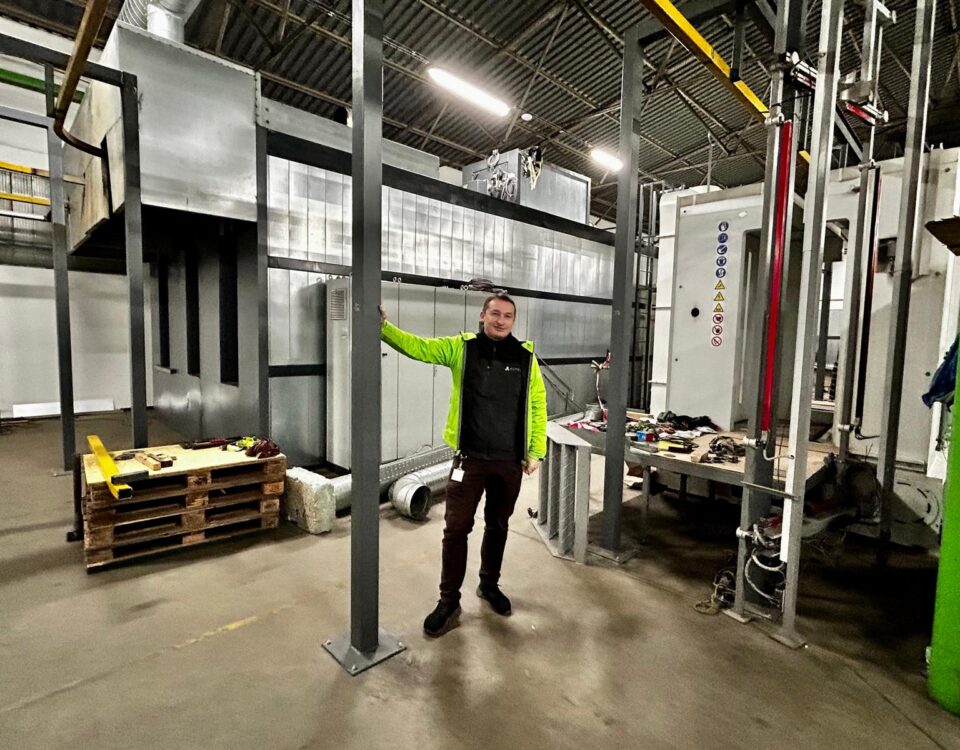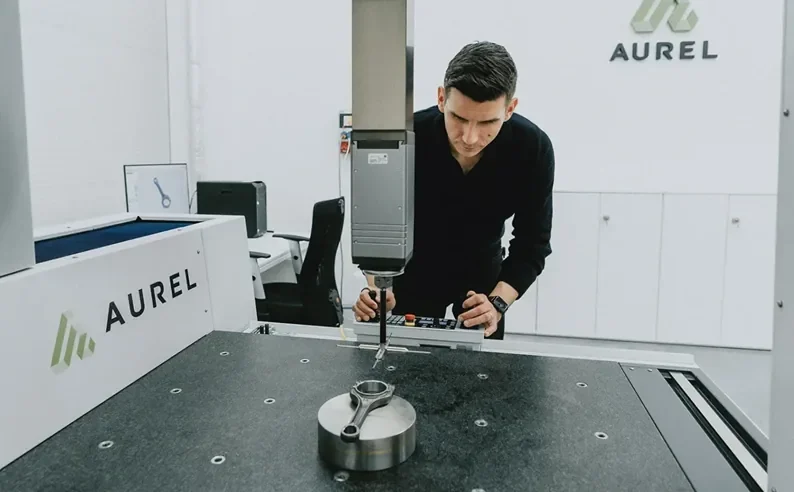Strain gauging is a reliable method for measuring mechanical stress in materials. It provides valuable insights into strain under various types of loading. This allows you to test the load-bearing capacity of structural components and optimise their design, safety, and service life. That is why it is essential in the automotive industry. At AUREL, we provide a complete service for companies – from design and measurement to the delivery of custom-made measuring probes.
How does strain gauging work?
Strain gauging allows for precise monitoring of the mechanical stress that occurs in a material under load. At the core of the method is strain gauge – a miniature resistive sensor that is bonded to the surface of the examined component. Stress on the component causes a slight deformation, which also affects the shape and electrical resistance of the strain gauge. These changes are electronically analysed and converted into mechanical stress values. Thanks to its high sensitivity and ability to detect even the smallest deformations, this method can capture both dynamic and quasi-static phenomena under various levels of stress.
Optimise your constructions with accurate data
At AUREL, we have over 20 years of experience in testing vehicles and their components. Using strain gauging, we have successfully completed hundreds of installations and measurements. Based on the measurement results, we can help you modify your construction to make it lighter, safer, and if necessary, stronger. Strain gauging identifies critical points where overloading occurs and enables the optimisation of material usage. In practice, this brings you:
- reduce weight without compromising strength,
- extended component lifespan,
- faster development and lower production costs.
Obtain accurate data for passive safety, engineering, and custom measurement probes
In the field of passive safety, strain gauging provides precise data on how structures behave during impact. It is commonly used to monitor body deformation, reinforcement stress, seat mounting, or airbag module attachments during crash tests. These measurements help you design crumple zones and safety systems more effectively, in compliance with EuroNCAP requirements and homologation standards.
Strain gauging also has broad applications in general engineering. It supports the development and testing of a wide range of components – from rotating parts to load-bearing structures. You can monitor material fatigue, deformation under load, or vibration during real-world operation. The result is greater reliability and safety of your machinery.
Need to measure stress in tight spaces or extreme conditions? We design and deliver custom measurement probes. These special sensors can operate in environments with vibration, high temperatures, or oil mist. Tailored manufacturing ensures accurate and stable results even in the most demanding applications.

Strain gauging has both benefits and limitations
Thanks to its sensitivity, this method will give you
- High measurement accuracy and immediate response.
- The ability to detect very small deformations even during operation.
- Reliable results even where other measurement methods fail.
- A wide range of applications – from automotive development to general engineering
Like any method, strain gauging also has its limitations. It requires precise application and careful surface preparation. It needs direct access to the measurement point. And external conditions can influence the results (such as temperature, humidity, or electrical interference). Despite these limitations, strain gauging remains one of the most accurate methods for strain measurement – when properly designed and realised. That is why it’s especially important to have an expert team of engineers and technicians with years of experience.
Accurate results require experienced experts
At AUREL, our experienced team handles the entire process – from design to outcome interpretation. Our expertise spans multiple fields, allowing us to assist you with:
- installing strain gauge for crash tests according to manufacturer specifications,
- verifying stress in casting and other mechanical components,
- analysing engine imbalance and other highly dynamic phenomena,
- producing custom-made strain gauge sensors (for force, torque, etc.).
At that is just the beginning – we take an individual approach to every project. We will provide a complete solution, including design, installation, measurement, and evaluation.
Do you want to measure stress in your structure and get reliable data? Contact us. At AUREL, we will design, install, and conduct custom measurements tailored to your needs.



